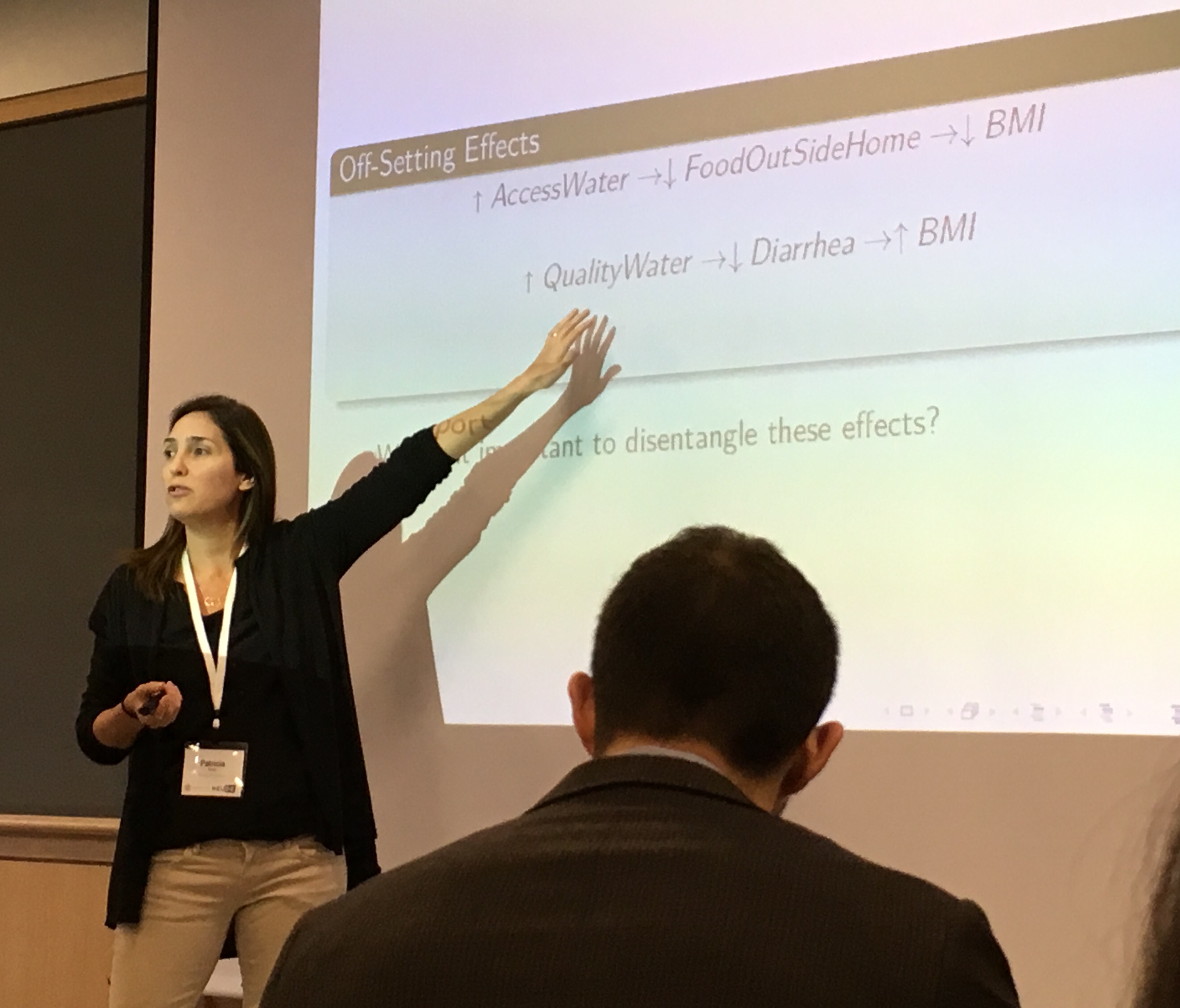This year at the 2018 NEUDC conference there were four Health and Nutrition themed sessions and one Water, Sanitation and Hygiene (WASH) themed session. Within these themes the research presented varied widely from more traditional areas of research, such as incentives to increase health insurance uptake and the effects of nutrition interventions, to newer areas, such as the geographic correlates of nutrition, networks and health-seeking behavior, and obesity.
Half of the papers in the WASH and Nutrition themes focused on South Asia. Within this group, sanitation and under-nutrition, especially micronutrient deficiencies, were popular topics. Of note was a which tackled the conceptually and econometrically complex problem of how to subsidize latrines in the presence of network externalities. The authors conducted an RCT whereby both the size of the subsidy to build a latrine and the fraction of the community offered a subsidy varied. They found that both matter, in that households respond both to price and to neighbors’ adoption decisions. An additional contribution of this paper was the development of a structural model that utilized their RCT results to evaluate several policy options. They concluded that while increasing the concentration of subsidies increases uptake, a wider geographical dispersion of subsidies produces larger positive externalities and is hence preferable from the policymaker’s perspective.
The second most common geographic focus within the health and nutrition sessions was sub-Saharan Africa (SSA). Most of the SSA papers were experimental papers covering such topics as clean water technology and health worker effort. Andrew Zietlin (with Craig McIntosh) presented highly pertinent experimental work seeking to benchmark a USAID-funded child nutrition program against a cash equivalent transfer. They found that neither the child nutrition program (bundled with savings and information interventions) nor the cash equivalent transfer affected child nutrition outcomes. However, a third treatment arm where households received a cash transfer equal to roughly five times the program equivalent yielded positive effects on children’s nutrition outcomes.
In the non-experimental realm, Pauline Rossi (with Paola Villar) presented a novel paper on complementarities in health investments in an environment with competing mortality risks. They exploited temporal variation in public health campaigns to fight malaria and spatial variation in malaria risk to study investment in child health in Senegal. They found that following the distribution of subsidized bed nets and increased availability of malaria treatment, child health expenditures in high malaria regions caught up to that in low malaria regions. This suggests that there may be multiplicative effects of public health investments due to complementarities in disease-specific investments.
An important theme among papers not focusing on either South Asia or SSA was the nutrition transition and the rise of obesity. Adrian Rubli (with Emilio Gutierrez) discussed soda taxes in Mexico, finding that the tax was associated with a temporary increase in diarrhea in areas with unsafe drinking water. This paper highlights the contradictory health effects of soda consumption and reiterates the need to improve access to safe drinking water. Along a similar vein, Patricia Ritter found that tap water was associated with lower BMI among children in Morocco and the Philippines, likely due to decreased soda consumption and an increase in home cooking. She pointed out that among the undernourished, piped water can increase weight due to a decrease in water-borne illness, while among the over nourished, piped water can decrease weight by increasing the availability of water for drinking and cooking in the home.


